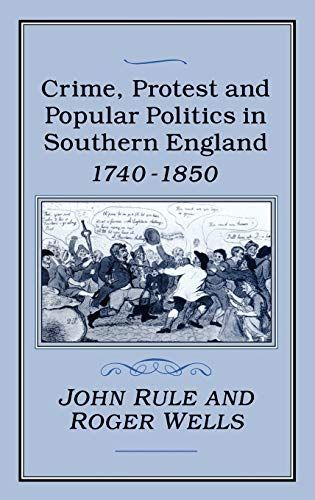
Crime, Protest and Popular Politics in Southern England, 1740-1850
Southern England has been studied considerably less than the industrialising north and midlands in the debate on the standard of living in the period up to 1850. Yet it is becoming clear that it was in the south and in the countryside that the greatest poverty and deprivation was to be found. In these essays John Rule and Roger Wells, whose work has made them leading authorities in this area, examine responses to the struggle to live. These responses ranged from, at the most extreme, sheepstealing and incendiarism to joining in food riots in an attempt to impose a 'moral economy'. More sustained protest is to be seen in passive and sometimes active resistance to authority, and in particular in the opposition to the introduction of the New Poor Law of 1834. Finally the appeal yet limitations of Chartism in the south is demonstrated.